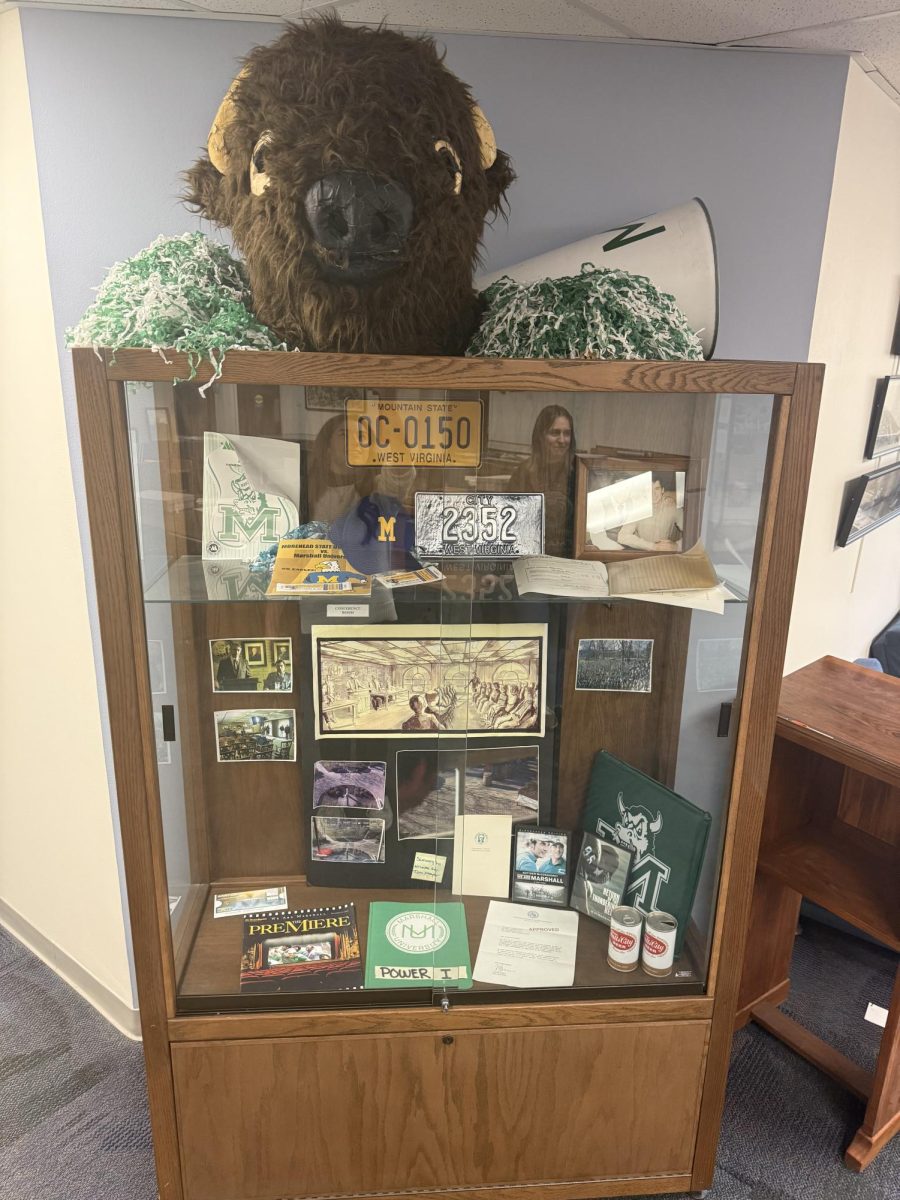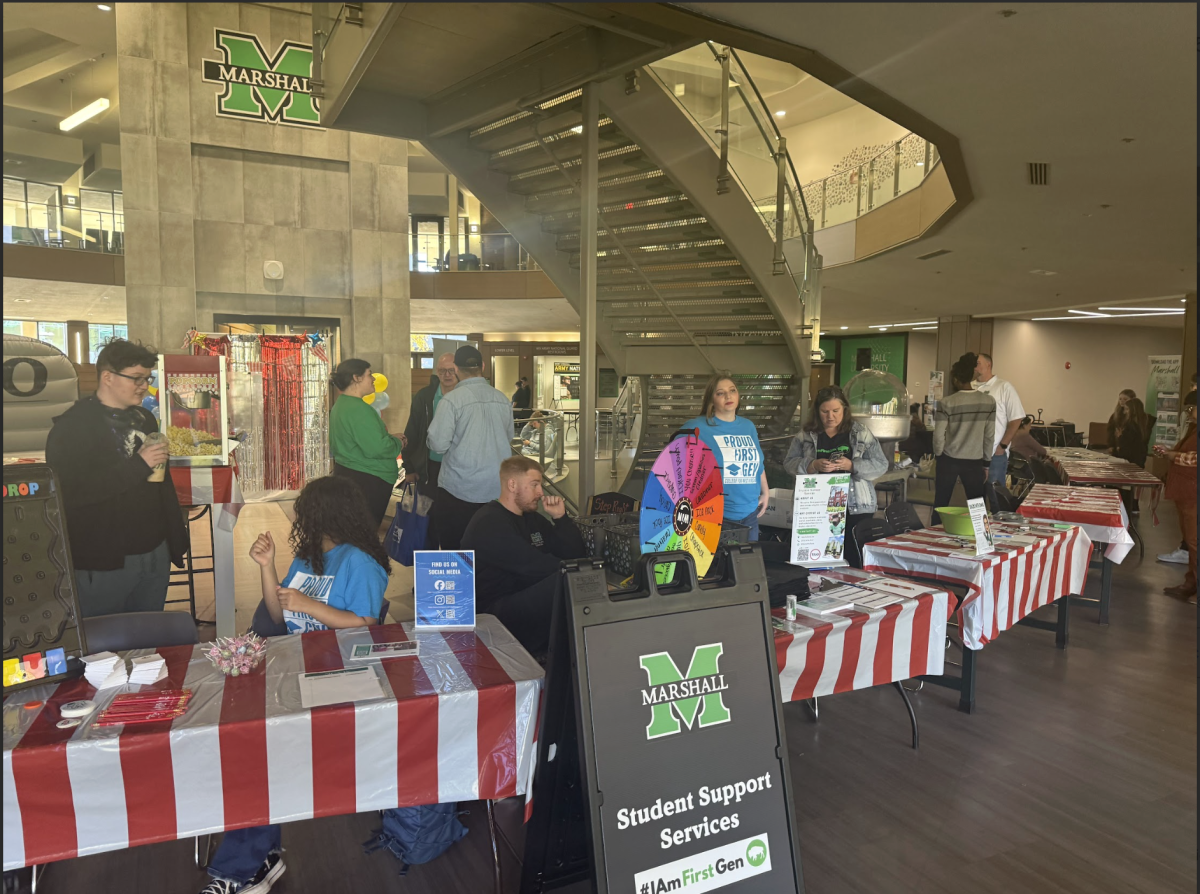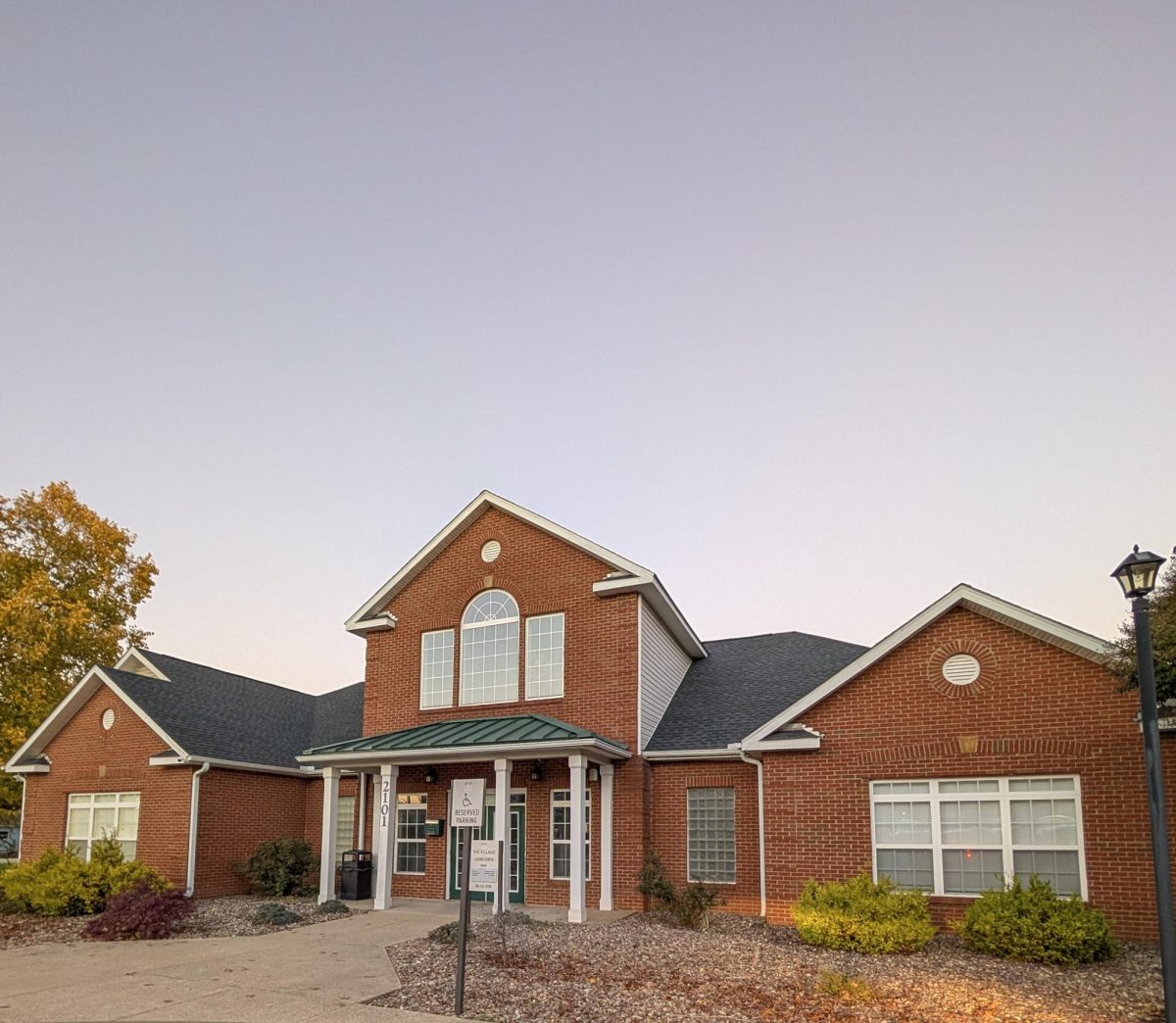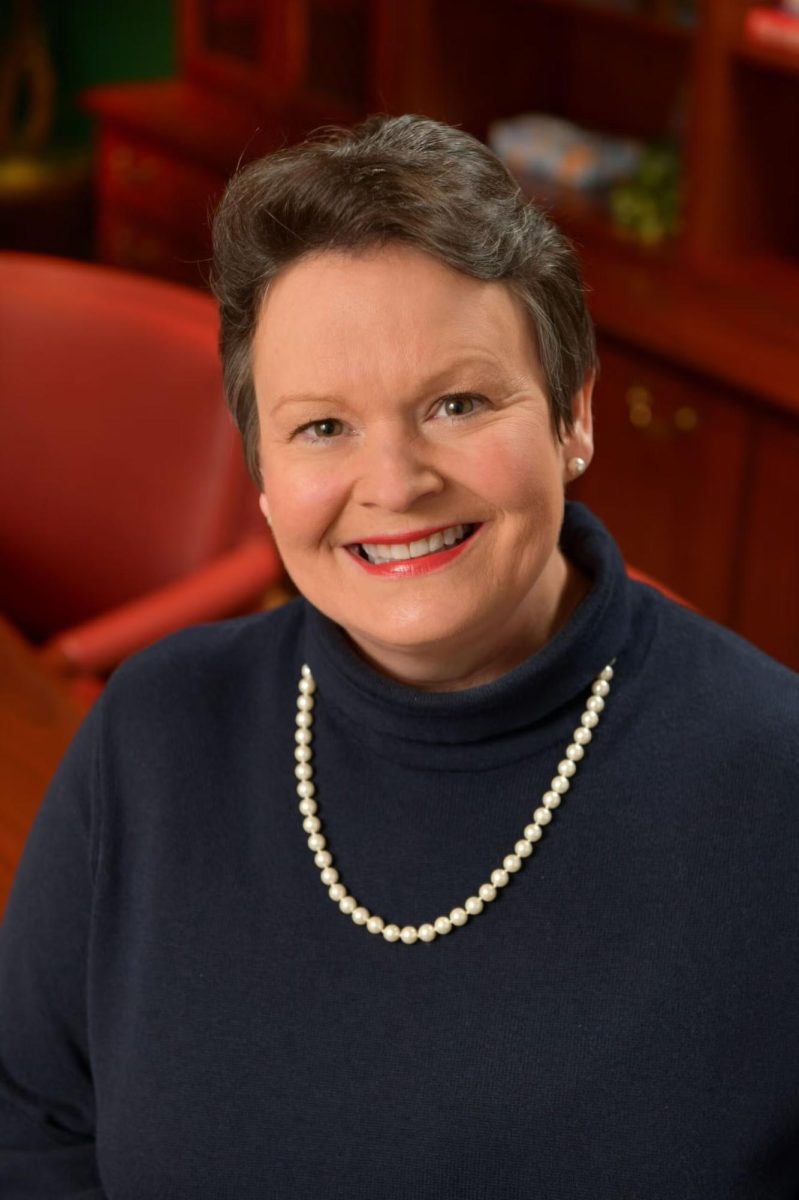“As the Sunflower Whispers,” a documentary film about the devastation incurred during the war in Ukraine, and the MUkraine faculty podcast covering the war premiered Saturday, Feb. 22, at the Joan C. Edwards Performing Arts Center.
The premiere was done in collaboration with Sunflower Seeds Inc., a non-profit humanitarian aid and awareness organization based in Huntington. John Yeager, the president of Sunflower Seeds, presented the premiere and recognized his colleagues and the creators of the film.
During Yeager’s presentation, he emphasized the amount of aid that had been sent to Ukraine through his organization, including $15,730 for medical supplies to be given to medical responders on the frontlines of the war.
The documentary, directed by Samuel Felinton, provided a history of the war in Ukraine and showcased firsthand accounts of Ukrainian journalists, refugees and foreign volunteers who were interviewed on the MUkraine podcast. The film also showcased footage showing the destruction caused by the war, as well as frontline combat footage.
The MUkraine podcast is a Marshall-affiliated podcast presented by Marshall faculty Victor Fet, Anara Tabyshalieva and Kateryna Schray. The weekly podcast’s intent is to maintain awareness of the war in Ukraine and provide a platform to the people affected by the war and volunteers who are helping humanitarian efforts.
When asked what message he was trying to spread with his film, Felinton said he wanted to spread a message of hope and not giving up, no matter how grim things may be looking.
“The message is to not give up and to always have hope for Ukraine. Have hope for the good guys and always know that there are always resources to give in this type of situation,” Felinton said. “There’s always going to be someone that’s trying to help for good, even if everything’s looking bad.”
Max Hill, who did camera work for the film, said working on the film opened his eyes to the depth of the war.
“Just how, like, in depth everything is. On social media, you barely see anything about it anymore, but this is still happening today, and nobody really talks about it,” Hill said. “I remember it was trending, and then the next day, it was like, ‘Oh, that’s still going on?’ Yeah, it is; this is people’s lives we’re talking about, and it just really touched me.”
Jacob Maue, who also did camera work, said his perspective has been changed by the war’s social media coverage.
“It’s one of the first wars that has been broadcasted on social media,” Maue said. “It gives a different perspective to others on how different casualties and stuff happens.”
Felinton said the primary lesson he’s taken from his time directing the film is war will always be present somewhere.
“I think the biggest lesson I took away from this is that war is still not happy,” Felinton said. “There’s no happy ending. If the war ends tomorrow or the next day, there’s still going to be war, and there’s still going to be deaths and casualties caused by the war.”
Ashton Pack can be contacted at pack173@marshall.edu




















